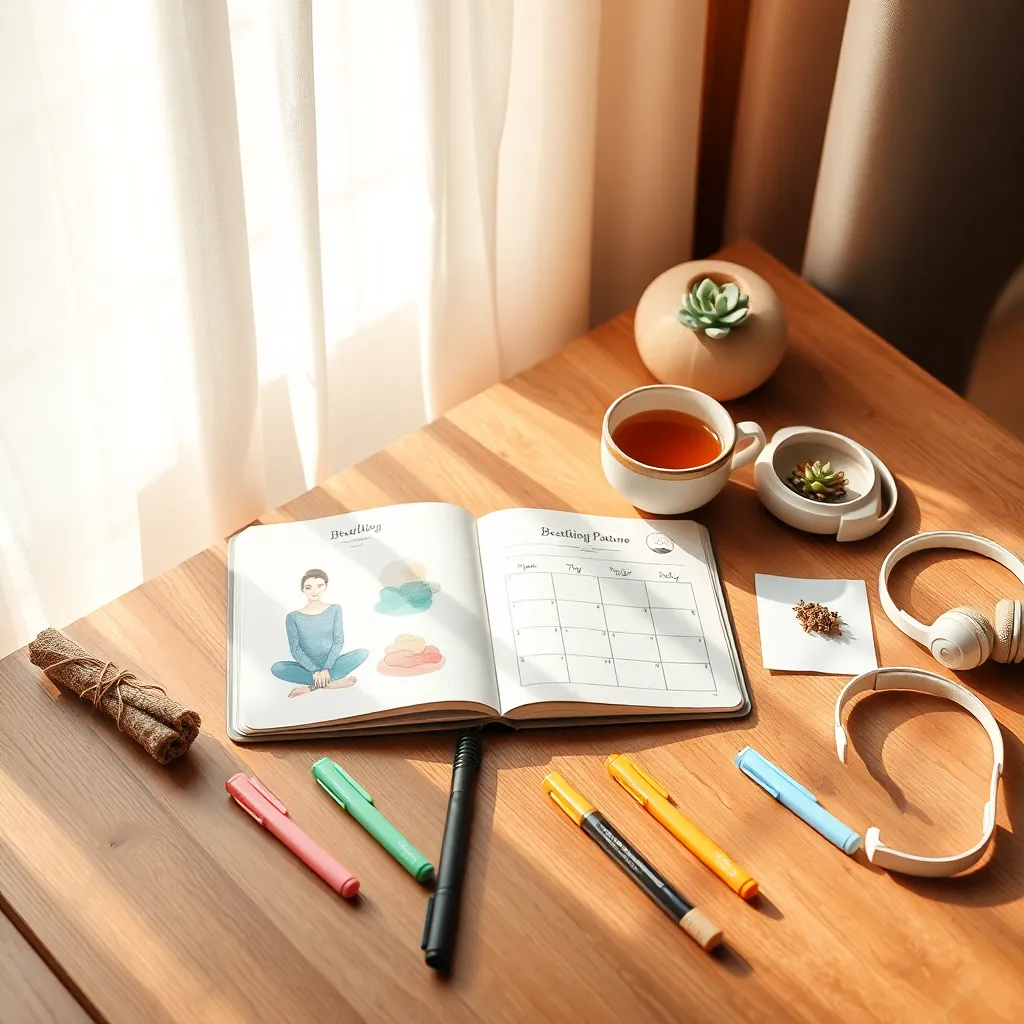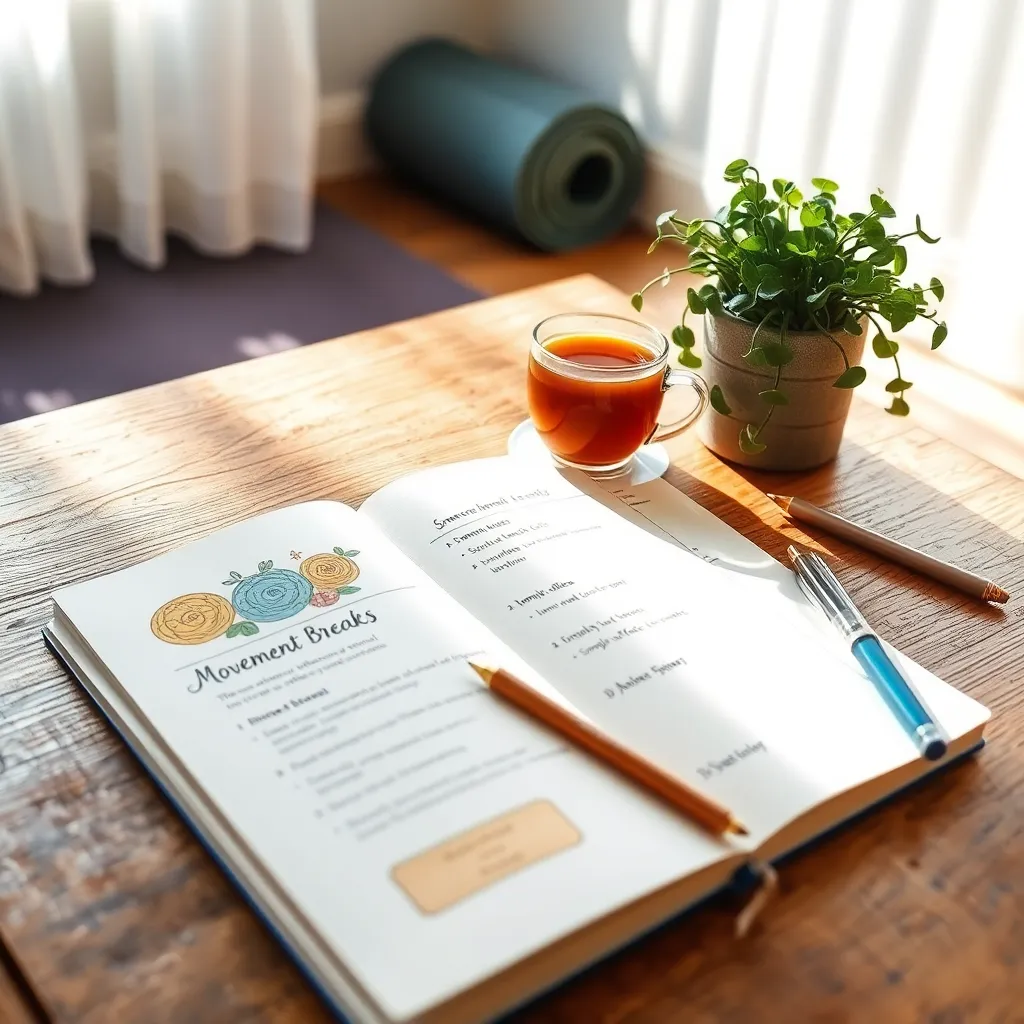In today’s fast-paced world, work stress can feel overwhelming. Simple self-care rituals offer a lifeline, promoting balance and rejuvenation. These practices matter because they help you reclaim peace and enhance productivity by nurturing your well-being.
Dive into this guide to discover practical tips that transform tension into tranquility. You’ll uncover easy, effective ways to refresh your mind and body, paving the way for a more harmonious work life.
Schedule Daily Mindful Breathing Breaks

Incorporate brief, mindful breathing sessions into your day to ease stress. Set reminders for short pauses, allowing you to focus on your breath and reset your mind. These intentional breaks can soothe tension and enhance your overall well-being.
Enhance this practice with journaling. Reflect on your breathing experience with prompts like:
- What did I notice during my mindful breathing?
- How did it affect my stress levels?
This reflection can deepen your awareness and reinforce relaxation.
Write Gratitude Lists Weekly

Regularly acknowledging what you appreciate can significantly reduce work stress. Set aside a few minutes each week to write a gratitude list. This simple act shifts focus from stressors to positives.
Try these prompts:
- “What made me smile today?”
- “Who am I grateful for this week?”
Let gratitude journaling become a comforting ritual that nurtures your well-being.
Set Boundaries with Work Hours

Establish clear work hours to protect your personal time. Document your boundaries in your journal to reinforce them. Reflect on how sticking to these hours enhances your well-being.
Try these journal prompts:
- “How does respecting my work hours influence my stress levels?”
- “What activities can I enjoy with the time I’ve preserved for myself?”
Create an End-of-Day Ritual

Wind down by creating a calming end-of-day ritual. Start with a simple journaling practice: jot down three things you’re grateful for. This focuses your mind on positivity and helps release stress.
Enhance this ritual by reflecting on your day. Use prompts like: “What went well today?” or “What’s one thing I learned?” This encourages self-awareness and closure, setting a peaceful tone for tomorrow.
Incorporate Movement in Breaks

Integrate brief movement during breaks to refresh your mind. A quick walk or stretching can significantly reduce stress, enhancing focus and energy.
Use journaling to track emotions before and after these breaks. Consider prompts like: “How does my body feel post-movement?” or “What thoughts emerged during the activity?”
Conclusion: Creating Beautiful Outdoor Spaces
In navigating the complexities of work-related stress, nurturing your relationship becomes paramount. This article explored five key concepts: prioritizing quality time with your partner, practicing active listening, setting boundaries to protect your relationship, engaging in mutual stress-relief activities, and maintaining open communication about work pressures. By integrating these strategies, you can create a supportive environment that fortifies your bond.
As an actionable next step, dedicate just 10 minutes tonight to share a meaningful conversation with your partner about your day. This small yet significant commitment can transform stress into an opportunity for connection.
Remember, relationships thrive on continuous effort and understanding. Bookmark this article as your go-to guide for nurturing your partnership amidst life’s challenges. Having it at your fingertips will empower you to revisit and reinforce these practices whenever needed.
Looking forward, by embracing these self-care strategies, you pave the way for not just enduring, but flourishing partnerships. Your relationship success story begins with each intentional action you take today. Keep this resource close, and let it be your companion on the journey towards a resilient and fulfilling relationship.


